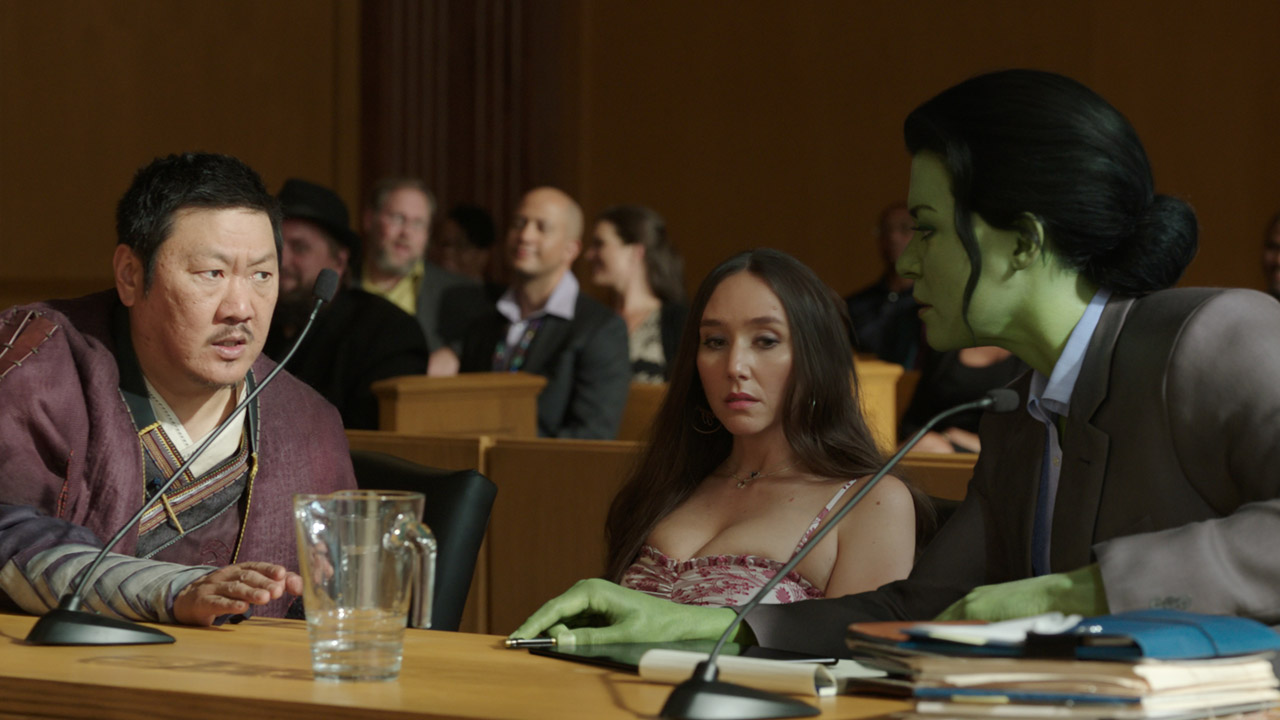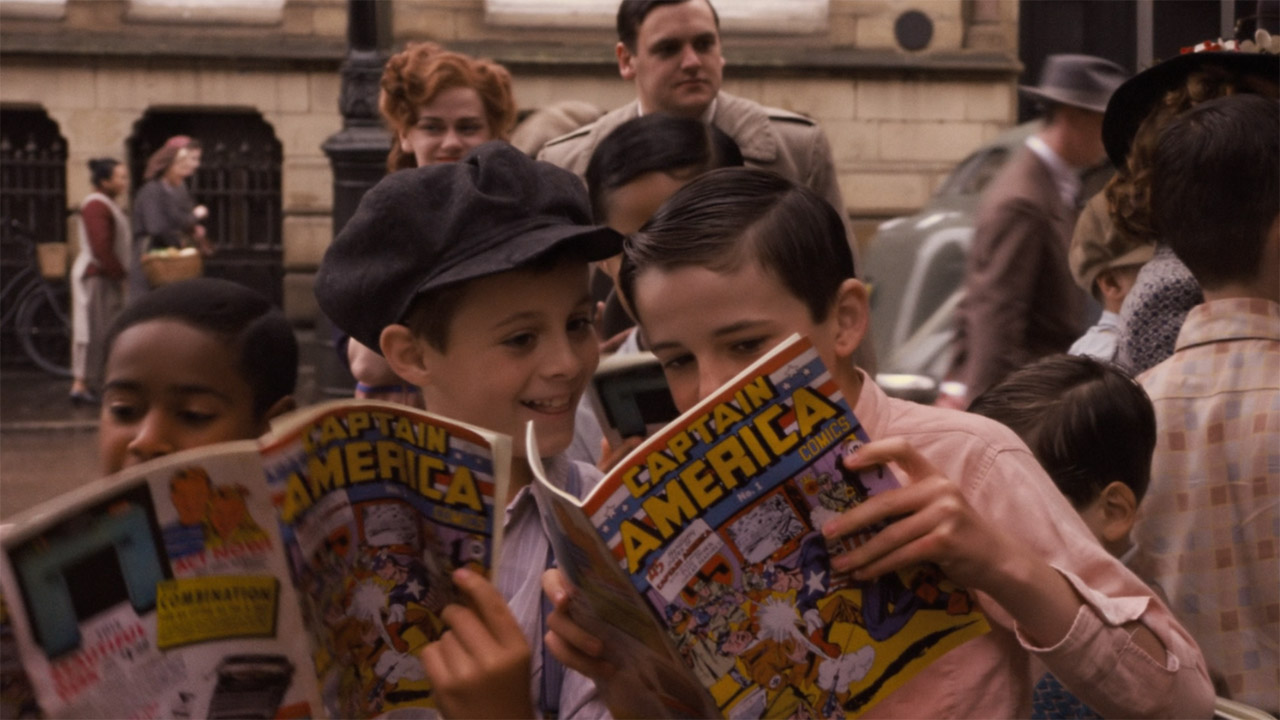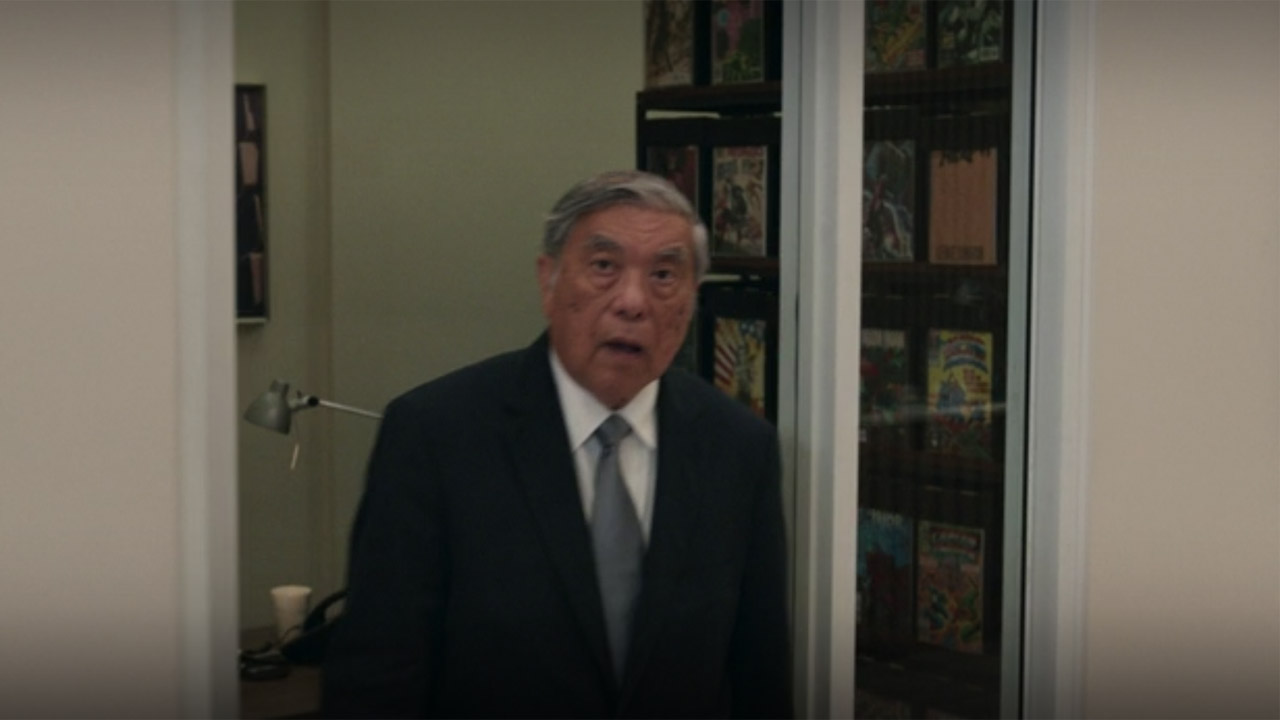One She-Hulk Comic Detail I'm Even More Excited To See The Show Explore After Episode 4
Let's dig deeper into the legal system of the Marvel Cinematic Universe!

Your Daily Blend of Entertainment News
You are now subscribed
Your newsletter sign-up was successful
One of the great things about Disney+’s She-Hulk: Attorney At Law is the series’ ability to showcase a new side of the Marvel Cinematic Universe – specifically the legal system. You wouldn’t expect a world filled with superheroes and supervillains to have the same laws and procedures as our own, and in the span of just a few episodes the show has been able to showcase the special differences in humorous and entertaining ways.
The plot of the latest episode, "Is This Not Real Magic?” is a perfect example. In the MCU, there is clearly a delineation between masters of the mystic arts and tricks performed by stage magicians, and Wong (Benedict Wong) goes to his lawyer She-Hulk/Jennifer Walters (Tatiana Maslany) hoping to first up the distinction with legal precedent. It’s a terrific set-up for a comical misadventure that hits a climax when a Criss Angel-type named Donny Blaze (Rhys Coiro) accidentally opens a portal to a hell dimension – but for Marvel fans the Disney+ series also continues to add special new layers to the canon.
It’s with this in mind and watching the show develop that I become ever more excited for She-Hulk: Attorney At Law to hopefully adapt one of my favorite details from the She-Hulk comic arc written by Dan Slott (which was a important source of inspiration for the series). In short, the comic books that we all know and love in our world not only also exist as comics within the Marvel Universe, but the way in which they recount actual events are verified to the point that they are admissible in court as evidence.
How Marvel Comics Work In Dan Slott’s She-Hulk Comics
Just like in the show, Dan Slott’s She-Hulk arc begins with Jennifer Walters taking a job heading up a superhero law division at Goodman, Lieber, Kurtzberg & Holliway, and in the second issue she does a tour around offices – including the firm’s extensive law library. This includes normal books and case files that pertain to the legal system as you and I know it, but also a basement filled with long boxes of Marvel Comics issues.
Jennifer meets Stu Cicero, who is the librarian and an extraordinary comic book nerd, and he tells her about how the Marvel publications can be used in court. He explains that most issues are licensed by the heroes themselves, and the seal from the Comics Code Of America on those from pre-2002 serves as a stamp of approval from a federal agency. So when She-Hulk is given cases featuring notable heroes and villains, she can turn to the comics to learn about their history and established precedent.
This is a wonderful, meta detail that Dan Slott makes terrific use of in his comic book run, and while the Disney+ original series can’t pull it off in the exact same way, it’s not only something that is doable, but something that has already been set up.
Court Admissible Comics Can Work In The MCU, Because We’ve Already Seen Published Comics In Movies
As far as adapting this amazing idea for the show goes, one major advantage is the fact that Marvel comic books in the Marvel Cinematic Universe have been a thing practically from the beginning of the continuity. Fans of Joe Johnston’s Captain America: The First Avenger will remember that the “Star Spangled Man” montage in the second act features a moment where a bunch of kids rush up to a newsstand to purchase a brand new comic about the patriotic hero – establishing the history of superhero comics in the canon going back to the 1940s:
Your Daily Blend of Entertainment News

Admittedly the comic shown in Captain America: The First Avenger is notably depicting an event that didn’t actually happen in the continuity (Captain America punching Adolf Hitler in the jaw)… but you’ll also notice that the comic doesn’t include the seal from the Comics Code Of America. It’s wholly believable that new regulations were put in place on the medium after Steve Rogers’ disappearance – perhaps shortly after Tony Stark announced to the world that he is Iron Man or after The Battle of New York (as seen in The Avengers). As everything has been unfolding in the MCU since then, writers and artists have perhaps been serving as documentarians of the various heroic and villainous exploits.
She-Hulk: Attorney At Law Has Already Featured An Office Full Of Comics
What only further bolsters my hopes here is the fact that She-Hulk: Attorney At Law has already winked at utilizing the idea. In Episode 2, "Superhuman Law," Shulkie starts her first day at Goodman, Lieber, Kurtzberg & Holliway, and while there isn’t any scene included where she visits the firm’s law library, it was hard for me to not notice the décor of one employee’s office:

In case you can’t tell, that’s an office featuring an open bookcase full of long boxes. If you look closely enough, you can see comics about Hulk, Captain America, Iron Man, Thor, and more – and why would they be housed at a law office if they didn’t have some kind of legal significance? The library isn’t as extensive as what’s depicted in Dan Slott’s run, but the superhero/supervillain history in the Marvel Cinematic Universe also isn’t anywhere near as extensive as what’s in Marvel Comics.
There are still five episodes left in the nine-episode Season 1 run of She-Hulk: Attorney At Law, and I’m continuing to keep my fingers firmly crossed that the show will introduce the idea of comics being admissible in court. It would not only be a fun new area to explore within the MCU and add special significance to comics in the blockbuster universe, but the image of Jennifer Walters and Nicky sitting on the office floor poring through chaotic stacks of comics looking for the key to an upcoming case is one that fans deserve to see depicted in the series.
For more about the Marvel Cinematic Universe, check out our Upcoming Marvel Movies and Upcoming Marvel TV guides, as well as our breakdown of the MCU timeline and ranking of all the MCU movies.

Eric Eisenberg is the Assistant Managing Editor at CinemaBlend. After graduating Boston University and earning a bachelor’s degree in journalism, he took a part-time job as a staff writer for CinemaBlend, and after six months was offered the opportunity to move to Los Angeles and take on a newly created West Coast Editor position. Over a decade later, he's continuing to advance his interests and expertise. In addition to conducting filmmaker interviews and contributing to the news and feature content of the site, Eric also oversees the Movie Reviews section, writes the the weekend box office report (published Sundays), and is the site's resident Stephen King expert. He has two King-related columns.
